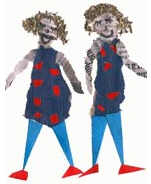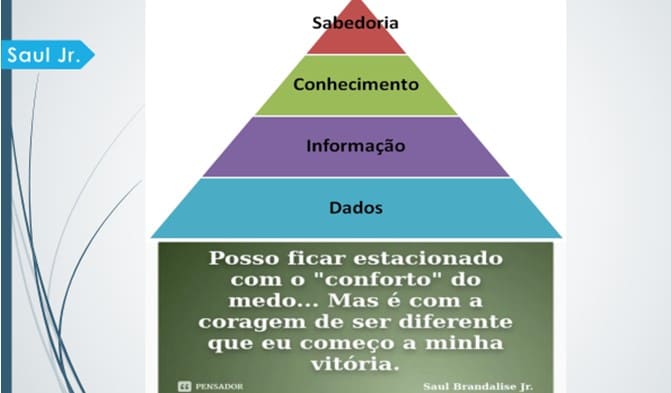Unconditional help

Autor Bel Cesar
Assunto STUM WORLDAtualizado em 08/04/2020 11:34:53
PETRA
Translated into English by Kevin Mathewson - [email protected]
In July of 1998, I met Petra during a course I gave in Italy on how to cope with death. During the course, which lasted a week, we developed a bond of affection and trust. She recounted her father's recent death, as well as reflecting on her own death, once she knew that her health was not good.
Petra was both delicate and gentle, though at the same time, firm and resolute. Her spirituality was apparent in her way of being, willing to love and to be loved. At the end of the course she expressed the wish that I be by her side in the event that her health should deteriorate. I went back to Brazil. Five months later her mother called me. Petra was in the hospital and wanted to see me.
The reason for her hospitalization was an infection as yet unidentified. She was in very serious condition, with a high fever and respiratory failure.
Since I was already planning to go to Italy, I went to visit her as soon as I arrived. She was in the intensive care ward with an oxygen mask, on respiratory life support. From previous experience, she knew this was an extreme situation; if the mask were to be removed for a moment to alleviate her discomfort she would asphyxiate within a few minutes.
The doctor on duty was kind and co-operative; he allowed me to be close to Petra as much as I wanted. Her mother and her boyfriend were present. We took turns at her side. Everyone was calm.
Not being able to breathe is a condition that provokes a sense of unrelenting emergency. Petra was frightened and her eyes expressed doubt and fear. The doctor had already told me that she would soon be intubated, and asked for my help in speaking to the family.
And so I met with the family outside her room and we got ready for the moment. Holding hands, we formed a circle and I guided them in a short meditation. In addition to reminding them how important it was to accept situations without judgment, I stressed once more the notion that there is nothing wrong with dying. Petra's mother said that she was greatly relieved to be reminded of this. She confessed that she was feeling guilty. Like her, many family members feel they have not done all they might have to take care of their relative.
This feeling of guilt results from an overestimation of ourselves: we think we could have done something which, in fact, was beyond our power. One of the reasons for this is that we confuse our feelings with those of others. Often we do not know what's going on in inside us, but we are "positive" of what is going on with others. We are in the habit of reaching our own conclusions, without consulting them, about what they are thinking and why the act they way they do.
When someone whom we are in the custom of "thinking for" is dying, we vainly imagine we are able to do something on his or her behalf. We want to do everything possible to provide relief from suffering and emotional conflicts. But once we fail to reach our goal of calming her, we feel guilty, as though we had not done enough. We must understand and accept that we can do nothing on behalf of the other person except inspire her to do something for herself. That is why it is important to realize that death is natural and there is nothing wrong with dying. In this way we can let go of the guilt based on thoughts that we always could have done more.
Feelings of guilt are also present in the person who is dying. Often he feels he is "to blame" for his illness and that he is a burden on his family. He also feels guilty for "abandoning" the people who survive him: parents, children or spouse. This feeling arises when we think we are able always to be present when the other person needs us, just as a mother would like to be able to comfort her child for as long as her help may be needed.
In the course of our lives, we have innumerable opportunities to accept separation as part of the natural course of things-especially when someone becomes separated from us without explaining why. Here we have the opportunity to go beyond the notion, which is presumptuous, that we have the right to understand the reason for everything, and therefore, to control the situation. If we learn to accept that nothing is permanent, we can learn to separate from others. That is why it is also healthy to realize that there is nothing wrong with separation.
If we repeat over and over again the statements, there is nothing wrong with dying, and there is nothing wrong with separation it can help us to overcome our guilt and accept reality. In her book, A Arte de Morrer [The Art of Dying (Vozes)], Marie de Hennezel writes: 'The time to die' has a special significance. Therefore it must be respected because it has its own meaning, even if that meaning escapes us. To take part in this time of dying demands an acceptance of death as an inevitable event. It also entails recognition of our own limitations. No matter how much we love someone, we cannot keep them from dying, if such is their destiny. We also cannot avoid a certain degree of emotional and spiritual suffering that is part of the process of dying for each person. All we can do is try to see to it that this suffering should not occur in solitude or dejection, for we can surround our loved ones with humanity. Petra's mother had laid to rest her feelings of guilt. Now she had to prepare to remain calm while her daughter was being intubated in the ICU.
The doctor had also asked me to tell Petra that she would be intubated. I had to summon my courage to tell her. After chanting some mantras at her side, I told her she would be taking some sedatives. She understood the situation right away and asked me, "Will they have to intubate me?"
"Yes," I replied. She looked me in the eyes and said, "I'm afraid." I explained the situation to her directly but gently. "With the mask pressed against your face you will continue to feel pain and it will be hard to find peace of mind. But if you sleep you can come into contact with the blessings of your spiritual teachers, Osho and Gangchen Rinpoche. Look into my eyes. I'm with you."
Petra squeezed my hand and gazed at me steadily. I began to chant aloud the mantra of Lama Gangchen Rinpoche. In the midst of this, the doctor and the nurses prepared the machinery for the intubation. In a few seconds, Petra was unconscious.
That was the last time I saw Petra. She remained in a coma for a month, then died.
The time she spent in a coma served as a refuge in unconsciousness, a preparation for death. As Marie Hennezel explains, "Life continues to be present, but the person seems to have withdrawn to the subterranean areas of his being. The coma seems to be a kind of lull in activities, a waiting period. Perhaps a way to give the people in attendance time to prepare for and accept the departure, perhaps the expectation of a word of farewell, of an authorization to die, or a final embrace that makes it possible to let go of one's body and die".
This text is extracted from the book "Morrer não se improvisa" (Death cannot be improvised: stories on the emotional and spiritual needs of people facing the end of life by Bel Cesar Ed. Gaia - october. 2001, São Paulo, Brasil










